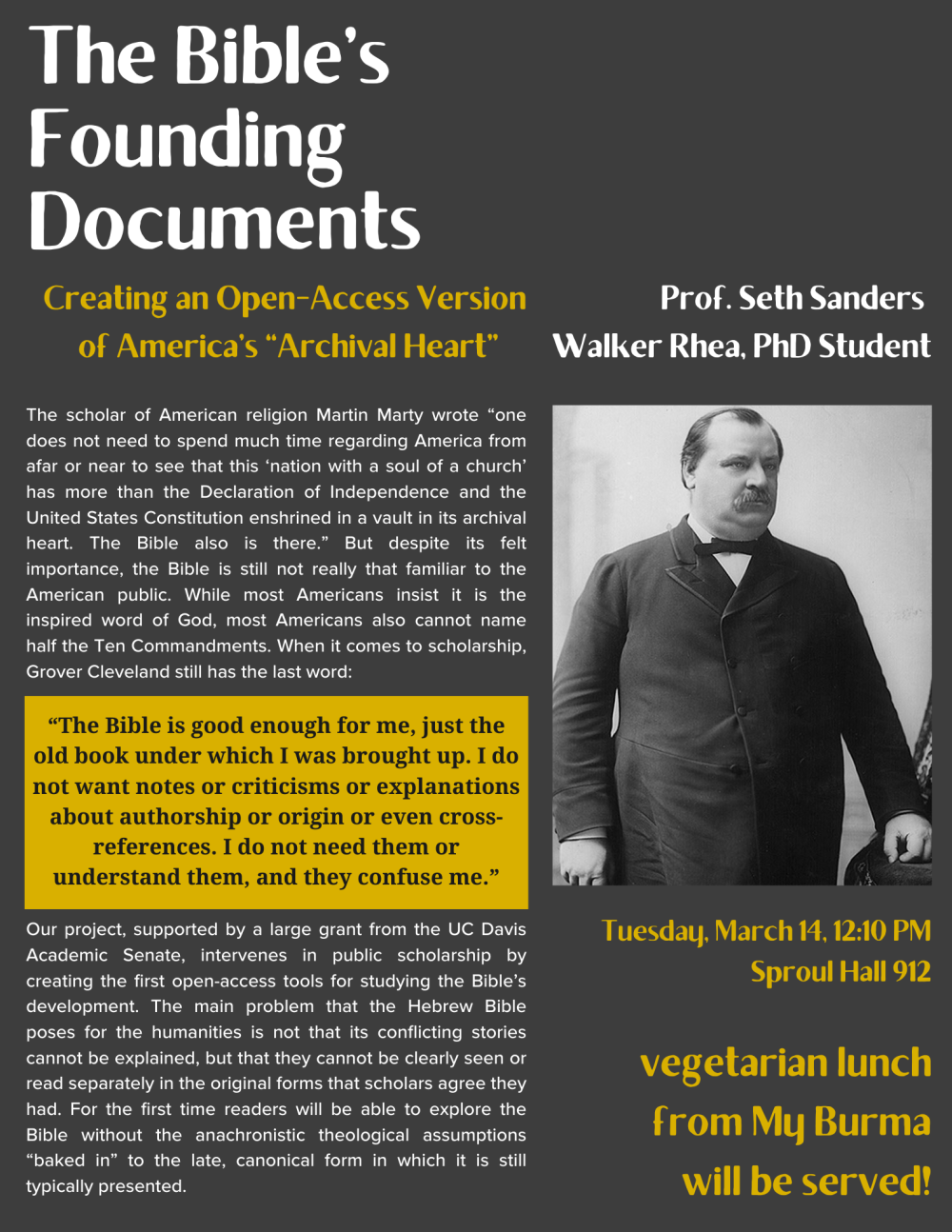Please join us for the next hybrid Notes from the Field, jointly presented by Prof. Seth Sanders and PhD Student Walker Rhea:
Tuesday, March 14, 12:10pm
In person, Sproul 912
vegetarian lunch from My Burma will be served!
To join on Zoom, Please contact emroczek@ucdavis.edu for the link
Prof. Seth Sanders and Walker Rhea, PhD Student in Religious Studies
The Bible’s Founding Documents:
Creating an Open-Access Version of America’s “Archival Heart”

The scholar of American religion Martin Marty wrote “one does not need to spend much time regarding America from afar or near to see that this ‘nation with a soul of a church’ has more than the Declaration of Independence and the United States Constitution enshrined in a vault in its archival heart. The Bible also is there.” But despite its felt importance, the Bible is still not really that familiar to the American public. While most Americans insist it is the inspired word of God, most Americans also cannot name half the Ten Commandments. When it comes to scholarship, Grover Cleveland still has the last word:
“The Bible is good enough for me, just the old book under which I was brought up. I do not want notes or criticisms or explanations about authorship or origin or even cross-references. I do not need them or understand them, and they confuse me.”
Our project, supported by a large grant from the UC Davis Academic Senate, intervenes in public scholarship by creating the first open-access tools for studying the Bible’s development. The main problem that the Bible poses for the humanities is not that its conflicting stories cannot be explained, but that they cannot be clearly seen or read separately in the original forms that scholars agree they had. For the first time readers will be able to explore the bible without the anachronistic theological assumptions “baked in” to the late, canonical form in which it is still typically presented.
